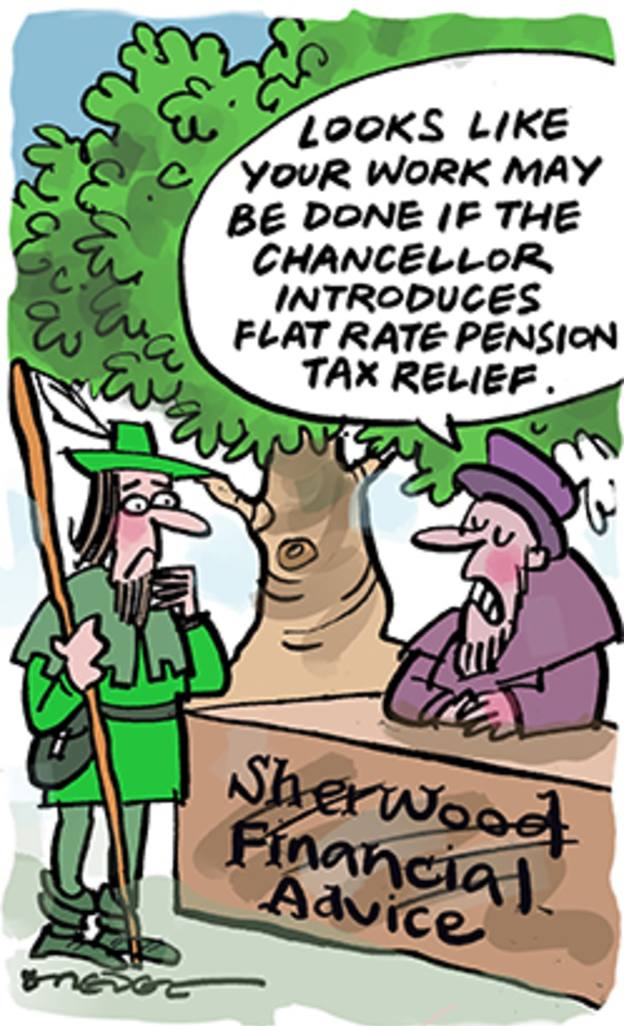
Here we go again. No sooner than the word ‘Budget’ crossed the lips of the chancellor, out leaks another report that pensions tax relief is going to be cut.
I will believe it when I see it.
Rishi Sunak is a chancellor that, in the few short months he has been at the helm, has shown a penchant for doing things differently. As the joke goes, he is the chancellor that Jeremy Corbyn always wanted.
But just because he likes to shake things up does not necessarily mean he will be the chancellor that finally kills off higher-rate tax relief on pensions.
To be clear, I am neither for nor against a flat-rate system yet, because we have not seen any detail of what a scheme would look like.

That does not mean we should unthinkingly accept an argument that just because the current system looks like it unevenly distributes the reliefs, that it is not the best option.
The debate goes that flat relief on pensions is fairer, and without going over all these arguments again, I get that. The majority of tax relief goes to the high-rate payers, and so cutting it for them and raising it for basic-rate taxpayers evens out the distribution.
But when it comes to dreaming of a flat-rate system you have to be very careful what you wish for.
The tax neutral position is that the flat rate would be 30 per cent (though it is worth noting whether this is 30 per cent of net or gross contribution, which as we know are two entirely different outcomes).
The 30 per cent figure is years old now since it was modelled, and one of the great changes since then is auto-enrolment, which has seen tax relief among lower income groups rise – and it will rise further. This quickly makes it look unaffordable.
So there is no way any flat rate would be tax neutral; it is far more likely that tax relief would be limited to just the basic rate. This would mean no benefit for the basic-rate payers, and just a tax raid on higher-rate payers.
And then there is the impact on public sector schemes, and the few remaining private sector defined benefit schemes, where lower tax relief would destroy the funding models.
There would also be huge problems for high-earning taxpayers in these schemes.
I cannot understand why, just years after the Hutton reforms, the government would go head on for another row with the unions over public sector schemes.
So, where does that leave pensions? Untouchable for the moment, but all the more in need of a wholesale overhaul if only to give long-term certainty.
Housing market unsustainable
The British obsession with house prices and sales is never-ending. Hands up, I am guilty too.
But the current figures showing record rises in prices are a little misleading. Anyone who knows the current state of the mortgage market knows that this is a blip, where pent-up demand is rushing through, like water released from a dam.
When it goes we will be left with a drought. First-time buyers are being squeezed out amid fears that prices will crash while some banks have modelled falls of between 7 per cent and 15 per cent. They need bigger deposits and they are being hampered by onerous rules that stop them from borrowing as they once would.
This is unsustainable. It does not matter how many housing support schemes you put in place, or what offers house builders can launch. If young buyers cannot get a loan and the deposit for a mortgage goes further over the horizon every month, then eventually something in the housing market will stall.
The asset-rich cannot keep on buying second homes forever.
When all government support ends, the true position of the economy will reveal itself.
Then we will see who is really left buying a house.
Prepare for a pop
What to make of the US tech rally and the two-day sell-off?
Figures from the Financial Times suggest that 530 of America’s 8,513 listed companies (or 6.2 per cent) trade at more than 10 times sales.
Only at the very top of the dotcom bubble can you see a larger percentage of stocks, at 6.6 per cent.
You can make your case that these inflated asset prices are all thanks to lower interest rates, which look set to stay, but to me it still looks like a bubble. And what we know about bubbles is that they do not tend to just shrink away painlessly – they pop.
James Coney is money editor of The Times and The Sunday Times




